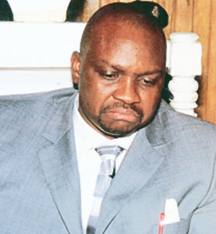In the twilight of some governors’ tenure, legislators of their states’ Assembly had initiated moves to impeach them for some reasons which could be real or imagined. Most Nigerians wonder whether the affected governors really breached the constitution, writes Senior Correspondent, ONYEWUCHI OJINNAKA.
Impeachment is a constitutional method applied to remove any public office holder if established that the person has abused their office or acted in grave violation of the constitution.
Officers affected by this impeachment clause include the president, vice president, Senate president, House of Representatives speaker, governors, deputy governors and Houses of Assembly speakers.
The impeachment clause is a guide to public officers not to misbehave while in office, whereas the move to impeach rests on the lawmakers after establishing a violation of the constitution by a public office holder.
After the impeachment of the first casualty, former governor of Kaduna State, Balarabe Musa, in the Second Republic, there was a lull due to reactions that trailed the impeachment.
However, after the short tenure of that republic, which was truncated by the military, democracy was restored in 1999 when Olusegun Obasanjo was sworn in as the President of the Federal Republic of Nigeria.
Shortly after the enthronement of democracy marking the Fourth Republic, impeachment saga resurfaced again with the removal of Governors Ayodele Fayose of Ekiti State, Rasheed Ladoja of Oyo State and Joshua Dariye of Plateau State by their respective Houses of Assembly. Since then, impeachment threat has been applied as a tool to silence overzealous executives that failed to listen to the, sometimes ridiculous, demands of the lawmakers.
More disturbing is that as Nigerians are basking in the euphoria of a new administration under the hitherto opposition party, the All Progressives Congress (APC), some Houses of Assembly are still threatening or about to impeach their governors under the disguise of alleged gross misconduct, abuse of office or violation of the constitution. From Ekiti to Enugu, Niger, Ondo, Bayelsa and Katsina states, the Houses of Assembly have initiated impeachment moves in recent months for removal of either the governor or his deputy.
Questions posed by some analysts are: what could be the motive behind the impeachment moves when the state executives’ tenure is up? Is the impeachment move really due to gross misconduct of the executives or could it be a political vendetta by some lawmakers or their godfathers who feel not favoured by the governor?
Astonishingly, these lawmakers have worked with their respective governors for years without any skirmishes, but only at the twilight of their tenure, they started initiating impeachment proceedings against their governor or his deputy. Ironically, these impeachment proceedings originated from the United States, and yet they do not apply it as much as Nigerians do.
Impeachment moves
In Ekiti State, impeachment saga became more pronounced and controversial as the plot to impeach newly-elected Governor Fayose of the Peoples Democratic Party (PDP) by 19 APC lawmakers in the state resulted in breakdown of law and order. Shortly after swearing in Fayose as governor of Ekiti for a second time, PDP members who were only two, rose to seven with the defection of five APC members to PDP.
Fayose used the seven PDP members to remove the Speaker of the House, Adewale Omirin, and replaced him with one of the PDP members in the House. Further, he used the seven PDP members to screen and confirm his nominees for appointment as commissioners. The move by 19 APC lawmakers who sat outside the chambers to impeach Fayose sparked off crises within the state as the trade unions and organisations, who are mostly supporters of Fayose, barricaded roads and entrance to the House of Assembly to prevent APC legislators from gaining entry.
Fayose will fully enjoy his office as the tenure of the current lawmakers will lapse in a matter of days, while the newly elected lawmakers to be inaugurated in June are all PDP but one. Fayose is said to be stubborn, and the impeachment moves initiated against him was to teach him some lessons.
In Enugu State, the impeachment move against Governor Sullivan Chime was not surprising to many because tension had been building up between the governor and the legislators. The grouse lawmakers had with Chime may not be unconnected with the loss of the governorship ticket by the House Speaker, Eugene Odoh, to Chime’s preferred candidate. Another issue that evoked the impeachment move was the governor’s decision to take N11 billion loan just two months before the expiration of his tenure; the concession of Enugu Water Corporation for 25 years and the alleged sale of choice areas of land in Enugu. The lawmakers view Chime’s motive as mortgaging the state and creating myriads of problems for the incoming administration.
However, no matter how genuine their grouses may be, pundits point to the fact that the whole tension and clamour for Chime’s impeachment was due to the loss of the governorship ticket by the speaker, coupled with the fact that he (Chime) denied most of the lawmakers tickets for re-election in the last general elections. To avenge their losses, they felt that the governor must be impeached. A political vendetta in the working.
In Niger, the impeachment move looks more like a joker. The legislators’ reasons for serving impeachment notice to the governor were more of selfish interest and personal aggrandisement. They alleged that the governor had been paying them half salaries since February 2015 and their severance allowances had not been paid. They decided to move against the governor not because of gross misconduct, abuse of office or any other constitutional breach, but because of their selfish gains. Strange and funny enough, the move was coming at the twilight of the governor’s tenure. Ironically, Niger is one of the states where the executive and the legislators had been having good rapport.
In Imo and Ondo states, the deputy governors were impeached as well, though the governors were accused of masterminding the impeachment of their deputies. Were they impeached as an anti-corruption strategy or political manoeuvre?
In Katsina, what was seen as an impeachment move against Governor Ibrahim Shema by the APC lawmakers in the House was eventually denied by the minority leader of the House. The denial led to jettisoning the impeachment move against Shema.
In Bayelsa, tales of impeachment against the governor was heard as rumour, as the lawmakers were yet to make any move towards serving impeachment notice to the governor.
Impeachable offence
With the above scenarios, it could be said that political vendetta played significant roles in the impeachment saga in some states of the federation. It is also observed that even if the governors abused their offices, the legislators left substance to pursue shadows by not facing the reality on the ground. Instead of looking at the constitutional breaches by the governors, they go after their selfish interests. If a governor settles them with ‘Ghana Must Go’ bags, they drop the impeachment charges against him and the romance continues.
Speaking on the worrisome issue, an Abuja-based lawyer, Austin Otah, said that most of the impeachment moves were politically-motivated. He stressed that the lawmakers need to know at what point impeachment should be applied. He cited the case of Dariye who was impeached by seven out of 21 lawmakers, but the Supreme Court nullified the impeachment on the grounds of grave violation of the constitution in the impeachment exercise.
Another lawyer, Julius Atanawherema, disclosed that impeachment is a borrowed practice, adding that it does not really fit into ‘our system’.
“Lawmakers tend to abuse it,” he added, positing that it is not easy to determine or discuss what amounts to gross misconduct. According to him, “Gross misconduct is determined by the interpretation of the National Assembly. Gross misconduct should be properly defined.”
Johnson Usman, a legal practitioner, recalled that the Supreme Court has not really nullified an impeachment due to alleged gross misconduct, but on the process adopted for the impeachment, wondering why six out of 31 lawmakers could embark on impeachment move. He cited the Supreme Court pronouncement on impeachment which states: “There must be quorum for the business of the House to be carried out, particularly on impeachment.” He also made reference to Section 188 (9) of the constitution. Usman averred that “our lawmakers are not ready to follow the procedure as pronounced by the Supreme Court”.
“Lawmakers do not learn from history due to their political aggrandisement. They do not understand the principles of separation of power,” he added.
In as much as impeachment should be applied for constitutional breaches by any public office holder, it should not be abused or used as a political weapon against a hardworking president, governor or any other public office holder who refuses to dance to the tune of so-called political godfathers and their cronies.














